[cut] Have ↑we↓ American patriots so lost our enthusiasm that we are afraid of our own institutions, or is it because in other critical moments we have so failed to live up to our ideals that we expect to fail now as we have before? When we undertook the very [praiseworthy] object of cutting through the Panama canal we followed the old precedent so often used by European powers of intervening in an internal revolution thereby obtaining a concession of land. Whereas, if we had remained true to our confidence in the good will of others and our practice of mutual efforts it doubtless would have been made quite possible to internationalize the canal undertaking so that at this moment the Panama canal under international administration would offer a working precedent for the internationalization of the [Dardanelles] and other waterways of Europe. Those who are eagerly searching for precedents in this direction are obliged to use that portion of the Danube River which [has] remained under international control throughout the war of several of the nations whom we are pleased to call backward. ↑Danish plebiscite↓ [page 3]
Insert 9.
[Carl] Schurz made the oft quoted comparison that his loyalty to Germany was that of a man to his mother and that his loyalty to the United States was that of a man to his wife. But certainly a wise woman would never, if it could possibly be avoided, pit the strength of the old loyalty against the new, knowing very well that a man's affections are not carried in separate compartments and that the loosening of one bond makes it much easier to loosen another, that to put a man into the position of divided allegiance is to make him question the foundation of all allegiance. [page 4]
Insert 10.
A friend of mine living in Brittany at the outbreak of the war told me the following story of the village of her adoption; that after the German drive through Belgium and while there was still danger of an occupation of Paris that the patriotic villagers had promptly offered the hospitality of every little house for the care of the wounded or for the Belgian refugees and for three days solemnly made preparation for their heroic guests. On the fourth day when word came that their guests were about to arrive they were startled and somewhat chagrinned to learn that the contingent consisted of twenty French paupers, old men who in the interests of their own safety had been removed from their asylum, which lay twenty miles outside of Paris in the probable line of the German advance. A Breton is nothing if not thrifty and it was hard to elevate into the ranks of the heroic these old men of Paris who have saved nothing for their old age and who had probably been wicked as well as wantonly wasteful.
[cut] For instance, the resentment of the exclusive Jewish sects to a new religion which declared itself to be universal and international had in it a large element of burning patriotism. The chosen people had been preserved through their separatism and as their minds flew back to the old precepts they saw only danger ahead in the international religion preached by Jesus. [page 5]
Secondly, the office of President is filled by a man so able to detach himself from the purely nationalistic point of view that he [cut] had already outlined a plan for a federated league of nations with the ↑a↓ supreme tribunal for the adjustment of international differences; he had urged the warring nations themselves to abandon the hope of victory [cut] through success of arms and had assured them that only such terms of peace as could be obtained through negotiations, could be durable. His
[cut] To mention an unimportant factor first; the political party in office at this moment has traditionally been in favor of greater freedom in trade. This ↑has a certain significance↓ is important because the party with a long cherished belief in the protective tariff would more easily distrust the formation of an international organization which later ↑might↓ indicate that open markets were a factor in securing peaceful intercourse between the nations or might even wish to abolish preferential tariffs altogether. At any rate it is an advantage not to be obliged to stop in a [crisis] like this in order to disentangle high tariff from patriotism with which it has been so long entwined in the minds of high tariff [partisans]. ↑certain party leaders.↓ [written in left margin] ↑re↓[cut] due, may ↑be easily↓ have to be postponed ↑again --↓ for another generation if one more great neutral nation throws itself into the collective homicide of the race because it has failed, either in intelligence or courage to ↑if the nations fail to↓ find a better way ↑method [for]↓ to establishing the ideals of democracy. [written in right margin] ↑re↓ It is difficult to see how one more nation by going to war, which is itself and extra legal process, can either conserve or add anything valuable to the present code of international law already so inadequate because such law as exists has been largely evolved through ↑in time of↓ war and ↑the code↓ is the result of efforts to restrain the animosities of illegal warfare rather than to obtain the finer flower of abstract justice. [written in right margin] ↑re↓
The existing code dramatically proved itself inadequate for [page 6]
[cut] ↑We↓ believe that the beginnings of ↑suggestions for↓ such a charter can best be undertaken ↑made↓ by a nation which [illegible] found ↑finds↓ war [too] clumsy and barbaric for its use and insists that mankind can use reason and goodwill in their international relations as they have learned to do in so many other relationships.
[cut] To the critics of the pacifist who claim there can be no peace until justice has been established through war we can only cite the precedents of history, that such justice as has been obtained in the past and codified into the common law of nations has come when men's minds were free to consider finer personal relationships and that the most notable achievement in the jurisprudence of which we are a part, was attained by the barons only after the "king's peace" had been established.
[cut] But because the ↑we as↓ pacifists recognize the irresponsible tendencies in all living nations as in all living men towards the unhampered employment of their crea-
[cut] ↑as good↓ patriots as well as pacifists, we naturally crave ↑hoped that↓ our own beloved country ↑[formed]↓ this great opportunity of leadership for ↑hope↓. [page 7]
[cut] ↑As pacifists↓ we earnestly hope that the United States will not be drawn into the fringe of the present world war by the enthusiasm of those who consider our participation righteous and inevitable, because we believe that an adequate organization ↑between the civilized nations↓ can be secured after this war only by the exercise of that rational understanding which has hitherto been so small a factor in international politics; and because We ↑also↓ believe that the United States would ultimately if not immediately, be of much more use in such an undertaking when the final "Peace Conference" considered it as the leading neutral nation rather than the fifteenth belligerent nation. That as a neutral the international good will and the interpretative powers which the United States undoubtedly possesses would not be challenged; that free from any [suspicion] of [partisanship] she would naturally be expected to place the great international interests above those of either alliance; to contend that the [underdog] could hope for justice only through the findings of an international body dispensing justice irrespective of the military powers of the litigants. [written in margin] Re [page 8]
↑material not used -- April 9" 1917↓ [page 9]
[cut] Just when the pacifist bids them set upon principles which are not yet codified into [international] law, still totally ignored by the diplomats and ↑are↓ only partly recognized by liberal governments. [page 10]
[cut] [written in right margin] ↑[re]↓ we believe that the present world crisis should secure such an organization. Being further convinced that there is an [unprecedented] opportunity at this moment for leadership in an international movement which would fairly revolutionize the existing "outlaw relations" between nations, as good [cut] because the very children at play are now being freshly inoculated with the belief that fighting and killing are glorious when performed in the name of patriotism, ↑they are laying the↓ a good foundations for the heresy that war keeps a nation morally sound and that collective [illegible] homicide is an agency in racial progress. [written in left margin] rewrite [page 11]
[cut] Liberal men in all the warring nations, heartsick over the reaction of long continued war upon their own democratic institutions and the inevitable exaltation of military power above civil authority, congratulated themselves that at least one great nation was keeping alive the usages of popular government and had not yielded to the contagion of war. Liberals on both sides of the Atlantic, occupied even now in creating devices which should make the declaration of future wars more dependent upon the will of the people, venture to hope that the nation which in its internal policies had been able to break with European conditions ↑traditions↓ almost a hundred and fifty years ago, might ↑now↓ be willing to push the principles of federation and adjudication into the shifting area of international relations.
[cut] In spite of the fact that nothing arouses the animosity of his fellow-citizens so quickly as the [tendency] in the pacifist to strengthen his case by citing religious teaching, I will venture to remind Christians that the great test of "the doctrine" is the ability to "do the will." Has the United States the spiritual stamina to put into practice that doctrine of rational internationalism which it so recently preached to the world?
[cut] Disillusioned, they heard again the old war slogans of Europe; Much talk about "national honor," of a "war of defense," of "standing by" the head of the nation, and many others for in our spirit of imitation we have not invented a single ↑new↓ one. The vast number of newly immigrated Austrian subjects, some of them at home loyal to the Kaiser ↑Austria↓ and some of them striving to throw off the ↑her↓ yoke, of Austria, all believed that when they emigrated to America they were coming to a new world which would be new in political ideals as well as in economic opportunity. They are ↑naturally↓ bewildered when they hear extolled on all sides the value of war and militarism which are the very backbone of the political regime they left behind. [written in right margin] [re?] [page 12]
[cut] ↑6↓ They doubtless recalled many other instances out of our mixed foreign relations policy -- which sometimes has been independent and progressive and sometimes curiously imitative of reactionary and even imperialistic methods -- but on the whole they [cut] recalled the fact that the United States was the first nation to call upon ↑require↓ the offices of The Hague court; that the United States had signed treaties with thirty countries which provide for a year's delay for investigations of difficulties between any of the signatory powers ↑before hostilities may begin↓ and that although diplomatic relations were recently broken off with Mexico efforts were made to adjust our differences, first through a Pan-American conference of diplomats and again through a joint commission.
[cut] Many factors conspire to make it possible at the present moment ↑for the United States↓ to push out well established procedure of political action into the international field [page 13]
[cut] ↑The ↑American↓ wars at sea which have been lost, [incident?] to this war have been resented to the exclusion of any mention in the newspaper of the↓ twenty thousand citizens murdered in this country, some of them this last year being burned at the stake ↑during that same period of time.↓
[cut] Since this war began, ↑the United States↓ [has] lost a half million more citizens from death by [preventable] causes than Germany has lost by this year. ↑battle during this year. Certainly such things touch our national honor. For this moment of incitement to war, little is said of the revolution in our educational methods by the substitution of the moral & psychological appeal for the use of force, & more [striking] still the introduction of similar [opinion?] for reforming [illegible] in the very institutions which were the ↑very↓ stronghold & justification of force↓
↑re. ↑[or put on page]↑ Curiously enough the usual [illegible] for the loss of the American lives at sea as a result -- if this war has come from people who have little worry of the loss of [lives?]↓ [page 14]
↑There is also a certain comfort in the fact that such opposition as the pacifist [illegible] in time of war may be short lived and that while he represents the lost side, so far as the national debate [between?] peace & war are concerned, his propaganda and the modification of policy asking for it, may influence the situation after the war is over. [and] [illegible] of nationalistic [illegible] subsided.
I was in England in 1900 when feeling ran high concerning the [illegible] of the Boer War which were then being carried on. Mr Lloyd George who opposed the war when addressing ↑an audience↓ in one of the northern cities was so set upon by mob violence that he barely escaped with his life. ↑He was hurried from the building↓ down a back stair from the building ↑[disguised in a]↓ policemans coat & helmet. Yet Lloyd George certainly later achieved a popularity in England and with others of the Anti Boer conference was wont to point to the generous arrangement in South Africa as partly the result of their efforts.↓ [page 15]
[cut] to war, quite as any hampered mechanical force or suppressed vitality exhibits violence when it at last breaks through.


























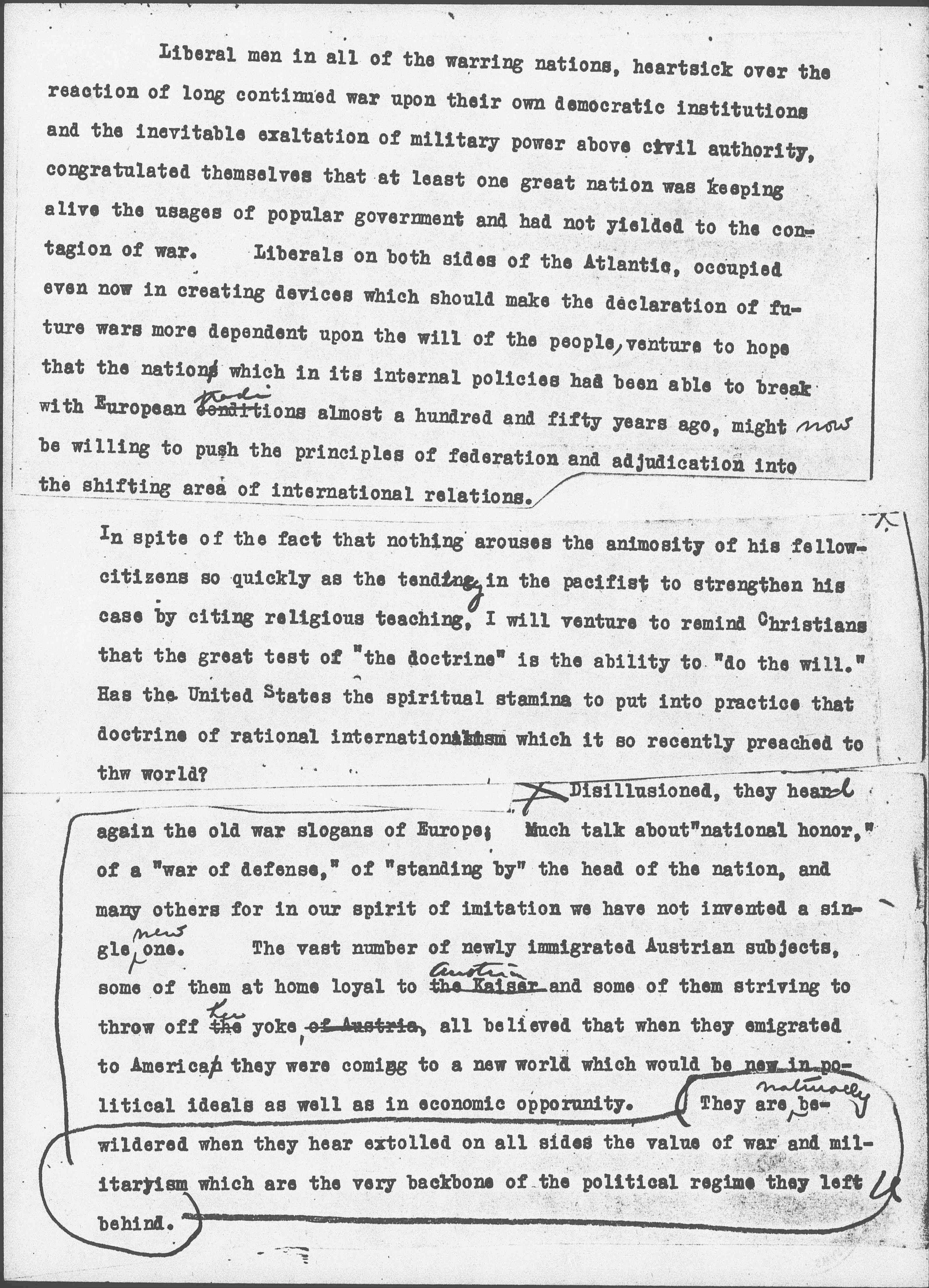


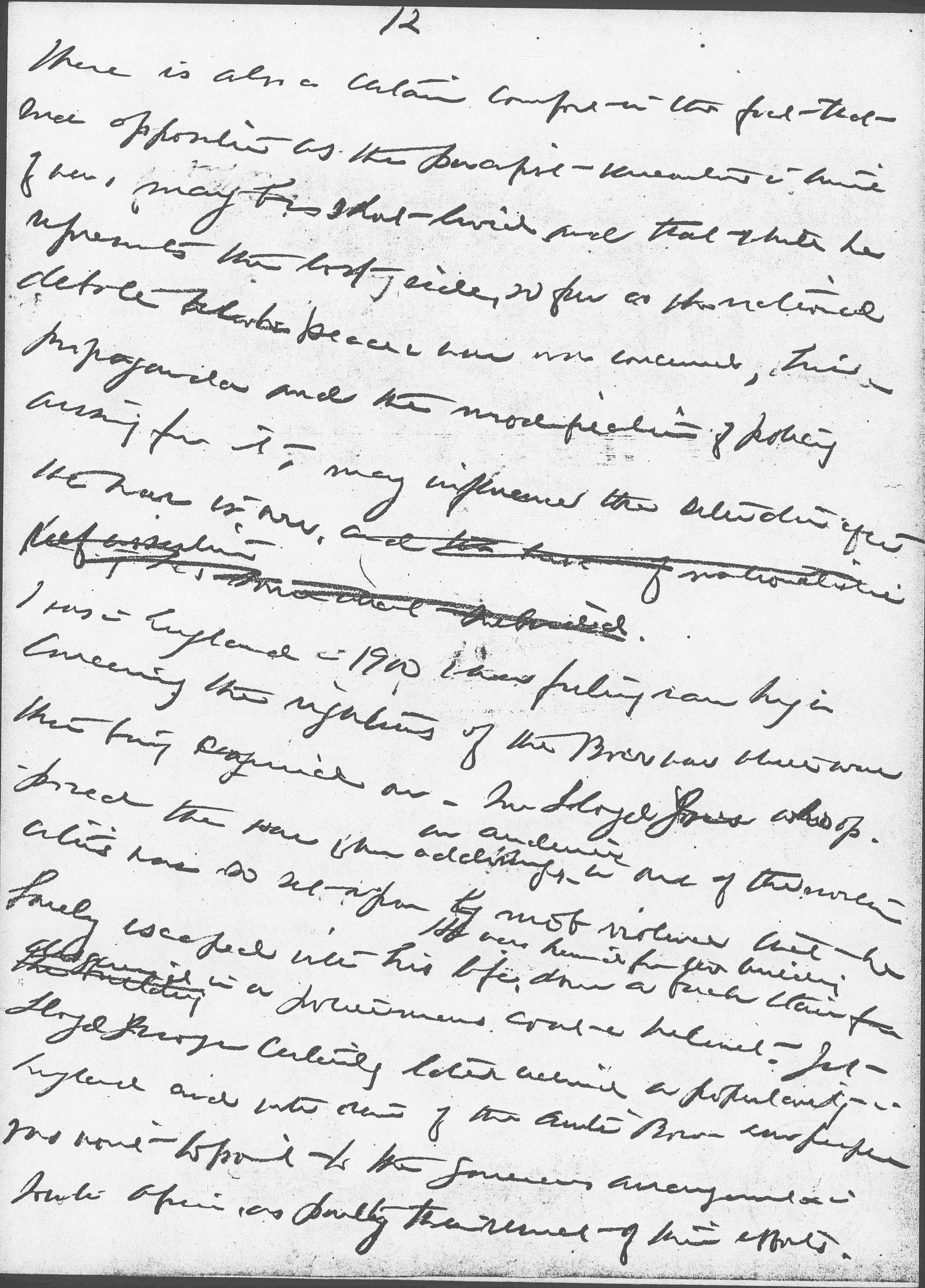

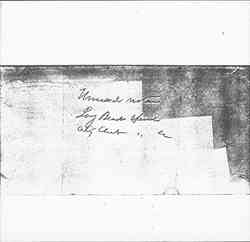
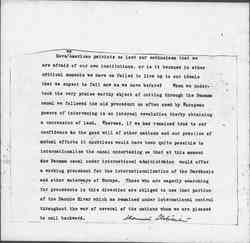

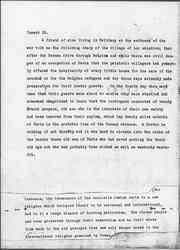
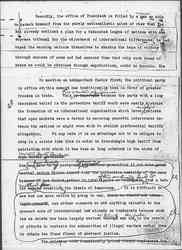
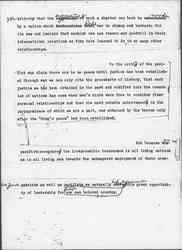
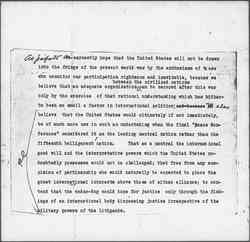
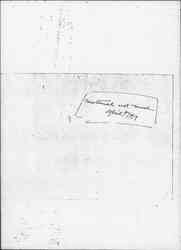
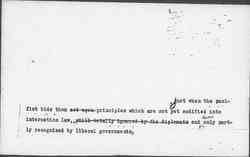
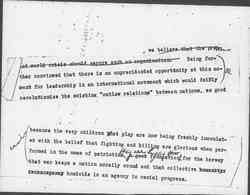

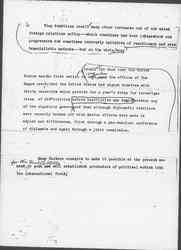
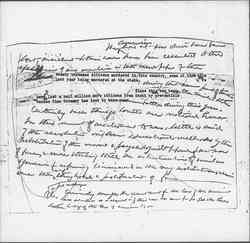

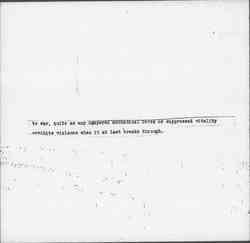










Comments